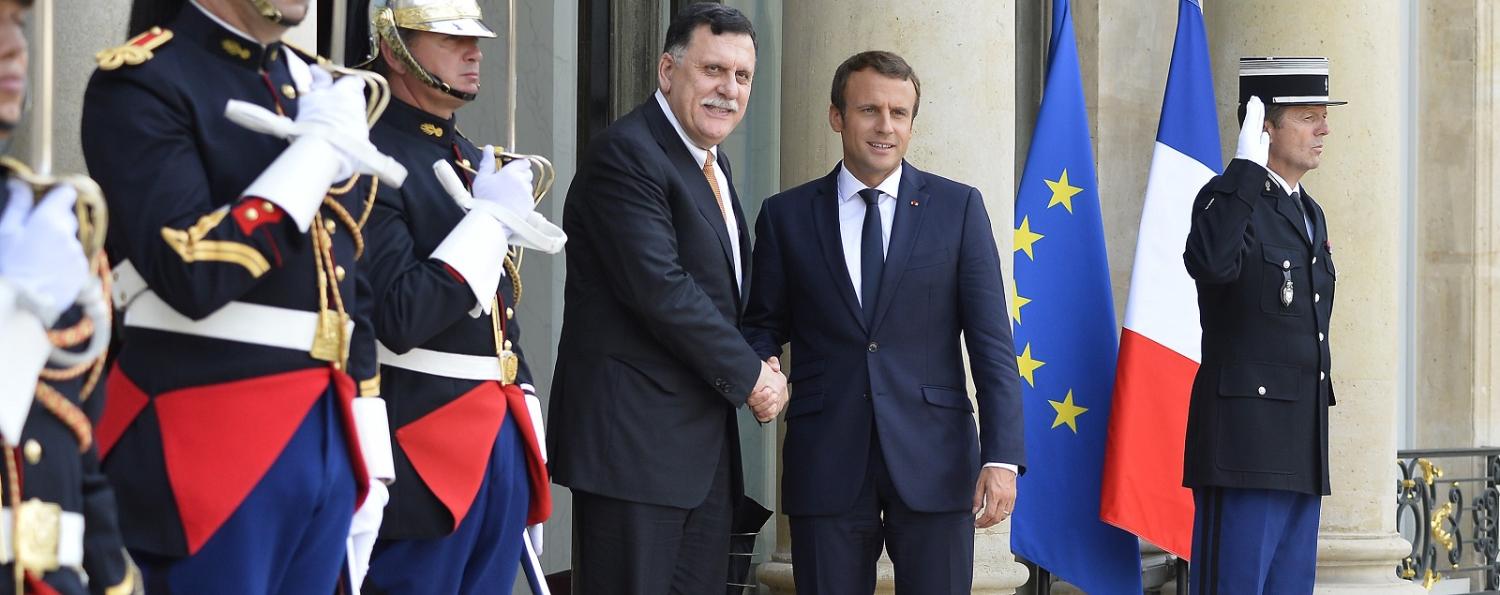'Too many cooks in the kitchen spoil the broth,' Ghassan Salamé, the new head of the UN Support Mission in Libya, told the Italian newspaper La Stampa earlier this month, referring to various international initiatives to bring peace to Libya.
There have certainly been many such efforts. In May, the United Arab Emirates hosted a meeting between the Prime Minister of Libya's UN-backed government, Fayez al-Serraj, and and the commander of the Libyan National Army, Khalifa Haftar. On 25 July Haftar and al-Serraj in Paris signed a joint declaration in Paris. On 9 September there was an African Union mini-summit on Libya in Congo-Brazzaville and there have also been Dutch-brokered meetings between rival parliamentarians and an alleged Russian peace initiative. Of all of these, Salamé was particularly refereing to the Paris meeting.
For its part, the UN hopes to breathe new life into the Libyan Political Agreement (LPA). This was signed back in December 2015 but has so far failed to deal with the country’s crisis. Details of Salamé’s new plan - expected to include changes to the LPA - will be revealed this week with a meeting on Libya scheduled alongside the UN General Assembly on Wednesday.
While Salamé’s frustration is justified, his proposals are likely to remain ineffective as long as countries like Egypt, Russia, Turkey, Qatar, Italy and France pay lip service to the PLA while still supporting their preferred factions on the ground. International convergence on what Libya’s future should look like is needed before a workable deal can come about.
One reason why various regional actors have pursued their own diplomatic initiatives is the inertia of the Trump administration on Libya. Secretary of State Tillerson's attendance last week at a conference organised by the UK to back Salamé’s efforts is a step in the right direction, but important countries such as Italy, Egypt, the United Arab Emirates, Turkey, Russia and Qatar will need to be brought to the table if a UN-backed deal is to have even a remote chance of success.
As it stands, the much-celebrated Joint Declaration signed by al-Serraj and Haftar in Paris two months ago implicitly recognises the failure of the LPA in its current form, it is unlikely to end the conflict in Libya.
While al-Serraj and Haftar represent Libya’s main rivals, there is a myriad of competing militias and tribal groups and extremist organisations such as the Libyan branch of the Islamic State (Isil). In Tripoli, al-Serraj's UN-backed government has little control over the factions that are nominally loyal to it and some militias support the rival Tripoli-based Salvation Government.
In the east, the agreement allows Haftar to continue his counter-terrorism offensive. According to The Guardian, soon after the deal was announced, the Muslim Brotherhood’s Justice and Construction party – a key opponent of Haftar – signalled its rejection of the terms, saying it would abide only by deals struck by UN mediation, not the Paris talks convened by French President Emmanuel Macron. Due to the military and economic weight of such groups, a deal between Haftar and al-Serraj is not in and of itself enough; and any deal must take on board the interests of these local groups.
Local, regional and international agreement on what they would like to achieve in Libya – a prerequisite for a comprehensive peace deal aimed for by many – is unlikely to occur this year. Rather than waiting for the creation of a unity government, or new elections, economic governance and local ceasefires must be tackled in the UN-led talks.
As I have argued previously, cash flow from the country’s oil fields is key not just to Libya’s economic recovery but a semblance of security. Nearly all of the country’s main militias receive state salaries. In the words of International Crisis Group’s Libya expert Claudia Gazzini, making progress in the management and security of Libya’s oil field and terminals, 'will be a crucial first step to reaching a grand bargain over Libya’s national oil wealth and in stabilising the country’s frail economy, even in the absence of a political deal'.
While talks on economic governance could foster an appreciation by Libya’s rival factions of their interdependence, ceasefires in Tripoli, Benghazi, and Sirte could slowly start to untangle the myriad of conflicts in Libya. After the failure of grand bargains in the past six years, the international community is more likely to see the stable Libya it seeks delivered through small, interim steps.
